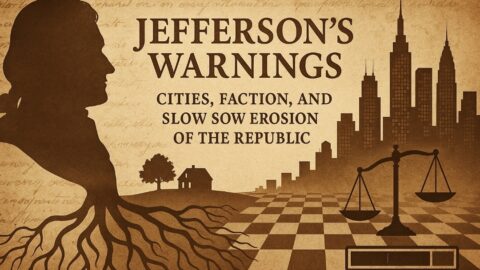“Because people don’t love truth, God will send them a strong delusion that they will believe a lie.” — 2 Thessalonians 2:10-12
This verse from the Bible (2 Thessalonians 2:10-12) is a profound and sobering warning from the Apostle Paul. It speaks about a time when people reject truth deliberately and, as a consequence, God allows them to fall deeper into deception. This passage reveals an essential spiritual principle: when truth is repeatedly rejected, a person becomes vulnerable to believing lies.
Let’s explore this scripture in detail, analyzing it spiritually, emotionally, mentally, and practically.
1. Context of the Verse
A. Biblical Background
- The Apostle Paul wrote this letter to the Thessalonian church to address end-times events, specifically focusing on the rise of the “man of lawlessness” (the Antichrist) and the great deception that would follow.
- The passage explains that those who reject God’s truth will be handed over to a delusion as both a consequence of their choice and a divine judgment.
B. The Core Message
- Truth is not merely factual correctness; it is divine, moral, and spiritual truth revealed by God.
- When people actively reject truth and embrace falsehood, they create space for a strong delusion to take root in their minds and hearts.
2. The Consequence of Rejecting Truth
A. The Love of Truth
- Paul specifies that it is not just a rejection of truth, but a failure to love truth.
- Loving truth requires humility, openness, and courage—it often requires confronting uncomfortable realities about oneself, the world, and God.
Example:
- A person who refuses to acknowledge their pride, dishonesty, or harmful habits may reject correction and choose comforting lies instead.
B. Deliberate Rejection Leads to Delusion
- God doesn’t randomly impose delusion on people; He allows them to follow the path they’ve chosen by repeatedly rejecting truth.
- This is a form of divine justice, where people are given over to their desires and the consequences of their choices.
Example:
- Pharaoh in the book of Exodus repeatedly hardened his heart against God, and eventually, God “hardened Pharaoh’s heart,” allowing him to fully embrace his rebellion.
3. What is a Strong Delusion?
A. A False Sense of Reality
- A strong delusion is not merely a misunderstanding or confusion—it is a deep, compelling false belief that distorts one’s perception of reality.
- It is powerful enough to make lies seem like truth and truth seem like lies.
Example:
- In our modern world, moral relativism (the idea that there’s no absolute truth) is a widespread delusion.
B. Spiritual Blindness
- Delusion blinds people spiritually, making them unable to see or accept truth, no matter how clear it is.
- They may even feel righteous and justified in their false beliefs.
Example:
- Some people vehemently defend harmful behaviors as “personal freedom” or “progress” while rejecting moral and spiritual accountability.
4. Emotional, Mental, and Spiritual Impact of Delusion
A. Emotional Consequences
- False Sense of Security: Delusions often provide temporary comfort or justification.
- Fear and Anxiety: Living outside truth creates internal conflict and emotional unrest.
- Hardness of Heart: Repeated rejection of truth can make one emotionally numb and indifferent.
B. Mental Consequences
- Distorted Reasoning: Delusions make logical reasoning difficult because the foundation of thought is corrupted.
- Cognitive Dissonance: The mind struggles to reconcile the lie with underlying realities.
- Self-Deception: People convince themselves that their choices are right, even when evidence suggests otherwise.
C. Spiritual Consequences
- Separation from God: Truth connects us to God, and rejecting it creates spiritual distance.
- Loss of Discernment: Spiritual blindness makes it difficult to distinguish good from evil.
- Judgment: Persistent rejection of truth brings spiritual accountability.
5. Modern-Day Examples of Delusion
A. Moral Relativism
- The belief that there is no absolute right or wrong leads to widespread moral confusion and societal decay.
B. Idolatry of Self
- The worship of personal feelings, desires, and self-image replaces humility and accountability to truth.
C. Cultural Lies
- Lies such as “money equals happiness,” “truth is subjective,” or “follow your heart no matter the cost” are widely accepted without scrutiny.
6. Why Would God Allow a Strong Delusion?
A. Divine Justice
- God respects human free will and does not force anyone to accept the truth.
- Persistent rejection of truth naturally leads to the embrace of lies.
B. Exposure of the Heart
- A strong delusion often serves to reveal the true state of a person’s heart.
- Those who love truth will recognize deception, while those who reject truth will fall deeper into it.
C. A Call to Repentance
- Even in delusion, God’s grace often provides opportunities for repentance and awakening.
7. How to Guard Against Delusion
A. Love Truth Wholeheartedly
- Actively seek truth in all areas of life: spiritually, morally, intellectually, and emotionally.
- Develop humility to accept correction and admit when you are wrong.
B. Stay Anchored in Scripture
- The Bible serves as a foundation of eternal truth. Regular study and meditation on Scripture help discern falsehoods.
C. Pray for Discernment
- Ask God for spiritual discernment to recognize and reject lies.
D. Stay Connected to a Faith Community
- Surround yourself with people who value truth and hold you accountable.
8. Final Reflection
This passage from 2 Thessalonians serves as both a warning and a lesson.
- Truth is not merely intellectual—it is moral and spiritual.
- Rejecting truth has consequences, and the ultimate consequence is becoming enslaved to lies.
- God’s allowance of delusion is both a judgment and an opportunity—to reveal hearts, expose choices, and invite repentance.
Key Takeaways:
- Love truth sincerely, even when it’s uncomfortable.
- Beware of persistent rejection of truth—it invites spiritual blindness.
- Seek humility, discernment, and spiritual guidance.
In short:
“To reject truth is to invite delusion. To embrace truth is to walk in freedom, clarity, and light.”







